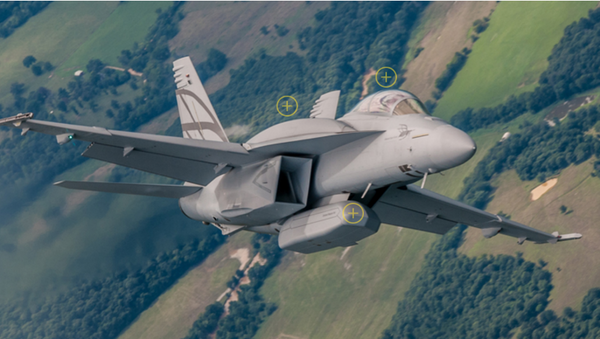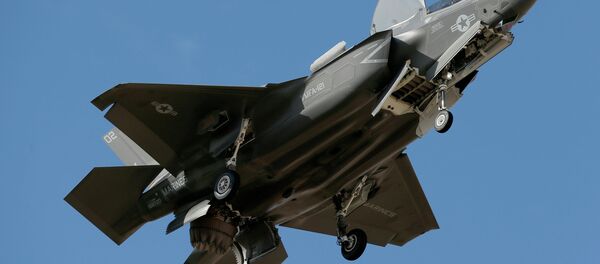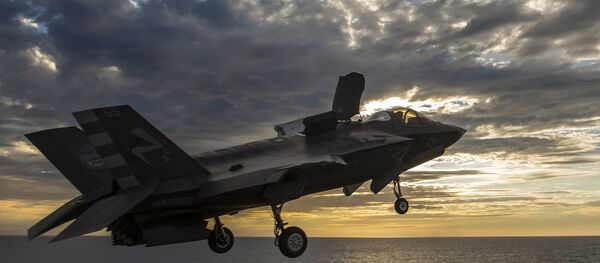The Chicago-based defense and aerospace company says the latest production model of F/A-18s improves upon previous versions of the F-18 in a multitude of ways. The jets carry more fuel, a greater payload, and feature new stealth sensors for China’s J-20 stealth fighter and Russia’s PAK-FA.
The original contract for all three variants awarded to Lockheed gave the company exclusive right to sell F-35s as a winner-take-all type deal. But since US President Donald Trump berated the F-35 and asked Boeing to price out a Super Hornet, Boeing may find a way to sell more F-18s to the Pentagon.
The company is confident a “general acceptance” exists among procurement officials to buy several hundred Block III F/A-18 for carrier wings instead of Lockheed’s F-35C, a Boeing vice president told the National Interest on Tuesday.
On April 1, Sputnik reported that a document had been circulating in Washington touting the F/A-18s ability to fill “significant capabilities gaps” left behind by the F-35. The F/A-18s would be an “affordable solution to the inventory challenge” currently staring down the Navy, Boeing’s lobbyists contended in the white paper passed around Capitol Hill.
The Navy initially agreed to buy 2,158 F-35s over the program’s lifetime.
Buying F/A-18 and F-16s instead of F-35s saves $48 billion over a 10-year period, according to a Congressional Budget Office analysis from October 2014.
As the competition between Lockheed and Boeing intensifies over who will supply the US Navy with its future carrier fleet, Boeing argues its newly unveiled Block III F-18s have better range and payload capacity, despite lacking the F-35’s stealth characteristics.
One feature on which Boeing is trying to sell officials is that flying with other F-35s requires less stealthiness for other aircraft in the fleet. At the Red Flag battle simulation held at Nellis Air Force Base outside Las Vegas, officials noted that the F-35’s scouting ability comprised one of its most valuable features. Once the joint strike fighter shot all its munitions, it hovered around the area to identify multiple threats at once. This allowed F-22s and other legacy fighters to clean up the rest.




